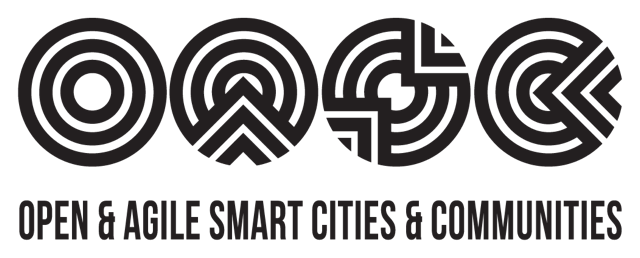ODALA will adopt the European Union Digital Service Infrastructure (DSI), also known as Connecting Europe Facility (CEF) Building Blocks. The building blocks support the creation of a digital single market where cities and companies can connect and share data. This environment is called ‘data lake’ and will allow cities to connect different data sources – static, historical, and real-time data – from diverse departments within the cities.
Empowering Cities through Innovation
The ODALA project’s primary goal is to empower cities with AI-driven insights. This mission is underpinned by three main objectives:
- Data Integration Technology Modules: The project is developing three advanced open-source data integration technology modules. These modules form the foundation for seamlessly blending legacy data with real-time information in a secure and usable format.
- Use-Case Deployment: These data integration modules are designed for deployment in two critical use-cases: Mobility and Environmental toolkits. This leverages the project’s advancements and integration work.
- Global Dissemination: The project aims to share insights, methodologies, and technological breakthroughs widely across the global smart city community, ensuring that knowledge is effectively utilized in various urban contexts.
Pioneering Methodologies in Challenging Times
The ODALA project’s journey has been both inspiring and challenging, marked by the following methodologies:
- Consortium Agreement: The project commenced with a consensus among technical consortium members, focusing on architectural and deployment aspects, with the Frontrunner City Kiel serving as the project coordinator.
- Adaptation and Adjustments: The project navigated challenges, including the unprecedented impact of the COVID-19 pandemic and adjustments in response to technical and partnership dynamics. The timeline was realigned to accommodate these shifts.
- Follower City Replication: After validating results in the Frontrunner City, the project extended its impact to four Follower cities. Each city’s unique infrastructure was considered for tailored and effective implementations.
Paving the Way for Smarter Urban Spaces
Tangible outcomes of the ODALA project include:
- Data Lake Toolset: A comprehensive toolkit has been developed, enabling the implementation of fully functional data lakes that amalgamate various data sources, fostering interoperability and access.
- Follower City Adoption: Follower cities have been equipped with operational and customized versions of the ODALA assets. Open-source resources available on GitHub, including scripts, guidelines, and explanatory videos, facilitated the deployment process.
Influencing the Landscape of Data Integration and Standardization
The ODALA project’s impact has reached far beyond its immediate scope, influencing initiatives like IDSA Data spaces, Gaia-X federated topologies, and ITU MIMs Plus Standardization. These contributions have enriched the data integration and standardization landscape.
Moreover, ODALA’s insights have contributed to smart city projects in various member states, enhancing advancements in platforms like FIWARE and OASC.
Beyond Conventional Portals
ODALA’s exceptional value lies in its ability to transcend conventional data portals. The project underscores the critical role of data gathering and data lakes in enabling comprehensive data access, secure access control, semantic interoperability, and marketplace functionalities.
The Nexus of Data Lakes and Smart Cities
Data lakes have emerged as pivotal components in modern smart cities, facilitating data-driven services like Digital Twins and Data Spaces. As cities establish their digital infrastructure, data lakes are central hubs that federate data and services, nurturing data-driven ecosystems.
Embracing New Frameworks
The ODALA project has showcased adaptability and foresight by embracing frameworks such as Data Spaces, Gaia-X, and myData principles. It has continually aligned methodologies with cutting-edge concepts.
A Commitment to Open-Source Principles
ODALA’s journey culminates in a comprehensive set of assets available on GitHub. These assets, including interoperable modules and implementation resources, empower cities to embark on their data-driven journeys.
More information: https://odalaproject.eu/


